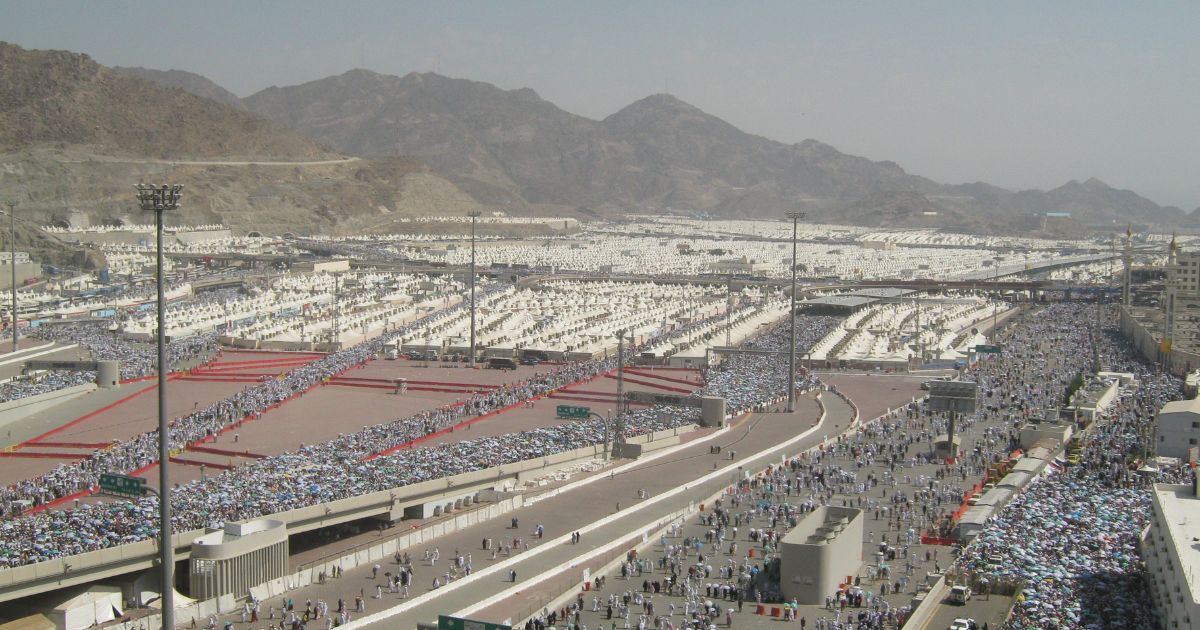What is the day of Arafah?
The 9th Dhul-Hijjah, known as the Day of Arafah, is major in Islam and is dedicated to fasting, prayer, and reflection on the plain of Arafah near Mecca. This year, it will fall on 15th June, 2024.
The Day of Arafah (Arafat) is one of the most important days for Muslims worldwide. Allah (SWT) refers to this day in Surah al-Maidah of the Holy Quran.
“Today, I have perfected your faith, I have fulfilled My favor upon you, and chosen Islam as your path.”
Surah Al-Maidah (Quran 5:3)
It’s the day on which He perfected His religion, completed His favors upon His beloved Prophet Muhammad (PBUH) and chose Islam as a way of life! Prophet Muhammad (PBUH) also said.
“There is no day on which Allah frees people from the Fire more so than on the day of Arafah. He comes close to those (people standing on Arafah), and then He reveals before His Angels saying, ‘What are these people seeking.” (Muslim)
Exploring the significance of the Day of Arafah helps us understand its spiritual importance and the rituals that are essential for the Hajj pilgrimage.
The Importance of the Day of Arafah
- The Day of Arafah is of great historical and religious importance. However, On this day, Prophet Muhammad (peace be upon him) delivered his last Farewell Sermon, a cornerstone of Islamic teachings. The sermon emphasized equality, justice, and the importance of following the Quran and Sunnah.
Important dates of dhul hajj - 8th Dhul-Hijjah: The Day of Tarwiyah marks the beginning of the Hajj pilgrimage.
- 9th Dhul-Hijjah: The Day of Arafah, the pinnacle of Hajj.
- 10th Dhul-Hijjah: Eid al-Adha, the Festival of Sacrifice.
Location and Description of Arafah
Hence, Arafah is a vast plain located approximately 20 kilometers southeast of Mecca. It is here that pilgrims gather from dawn until sunset, engaging in prayer and supplication. Moreover, The plain is marked by the iconic Mount Arafah, also known as Jabal al-Rahmah (the Mount of Mercy), where the Prophet delivered his sermon.

Fasting on the Day of Arafah
Those who are not doing the Hajj are strongly advised to fast on the Day of Arafah. It is a Sunnah practice that carries immense rewards. The Prophet Muhammad (peace be upon him) said,
” Fasting on this day expiates sins from the past and future years.”
Rewards and Benefits
Fasting on the Day of Arafah is a deep act of worship. It is a chance for Muslims to seek forgiveness, contemplate their actions, and gain spiritual blessings. The practice fosters a sense of solidarity with the pilgrims and a deeper connection to Allah.
Prayers on the Day of Arafah
Intense prayers and supplications mark the Day of Arafah. Muslims recite the Talbiyah, a prayer of devotion and submission to Allah, and engage in personal supplications. The day is an occasion to seek Allah’s mercy, guidance, and forgiveness.
Spiritual Significance
The prayers on the Day of Arafah carry profound spiritual significance. They represent a direct connection to Allah, a chance to unburden one’s soul, and a moment to renew one’s faith. The collective prayers of millions create a powerful atmosphere of devotion and humility.
The Rituals of the Day of Arafah
On the Day of Arafah, pilgrims gather on the plain of Arafah, where they offer prayers and supplications. They stand in the scorching heat, seeking forgiveness and mercy from Allah. The day is filled with tears of repentance as pilgrims reflect on their past deeds and seek a new beginning. The rituals of the Day of Arafah are a testament to the power of faith and the human spirit.
Eid al-Adha
The Day of Arafah is followed by Eid al-Adha, the “Festival of the Sacrifice.” This festival commemorates the readiness of the Prophet Ibrahim (peace be upon him) to sacrifice his son Ismail in obedience to Allah’s command. Eid al-Adha is a celebration of obedience, sacrifice, and the blessings of Allah.
conclusion
The 9th of Dhul-Hijjah, the Day of Arafah, is a day of immense spiritual significance in the Islamic calendar. Therefore, It marks the climax of the Hajj pilgrimage, a journey that millions of Muslims undertake each year to the holy city of Mecca. Finally, this day is a time for spiritual reflection, fasting, and prayer, and it is considered the most important day of the Hajj pilgrimage.